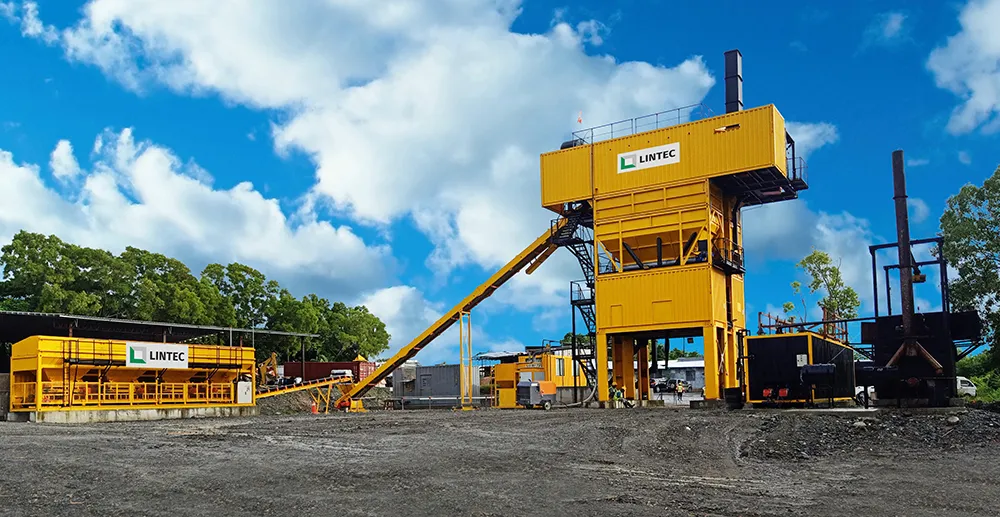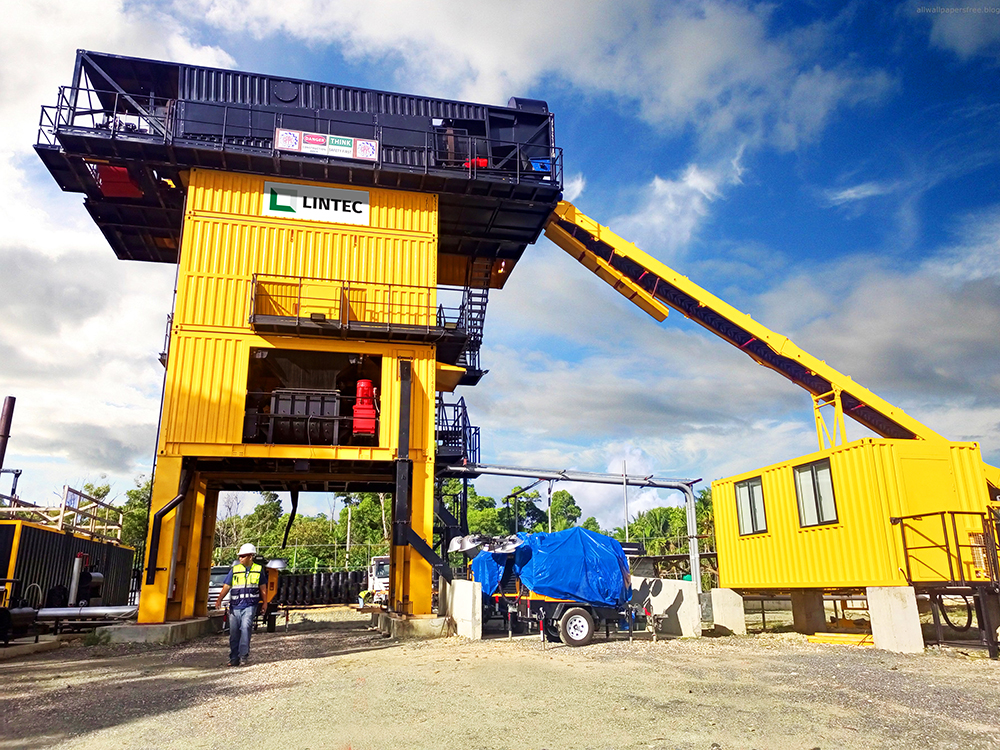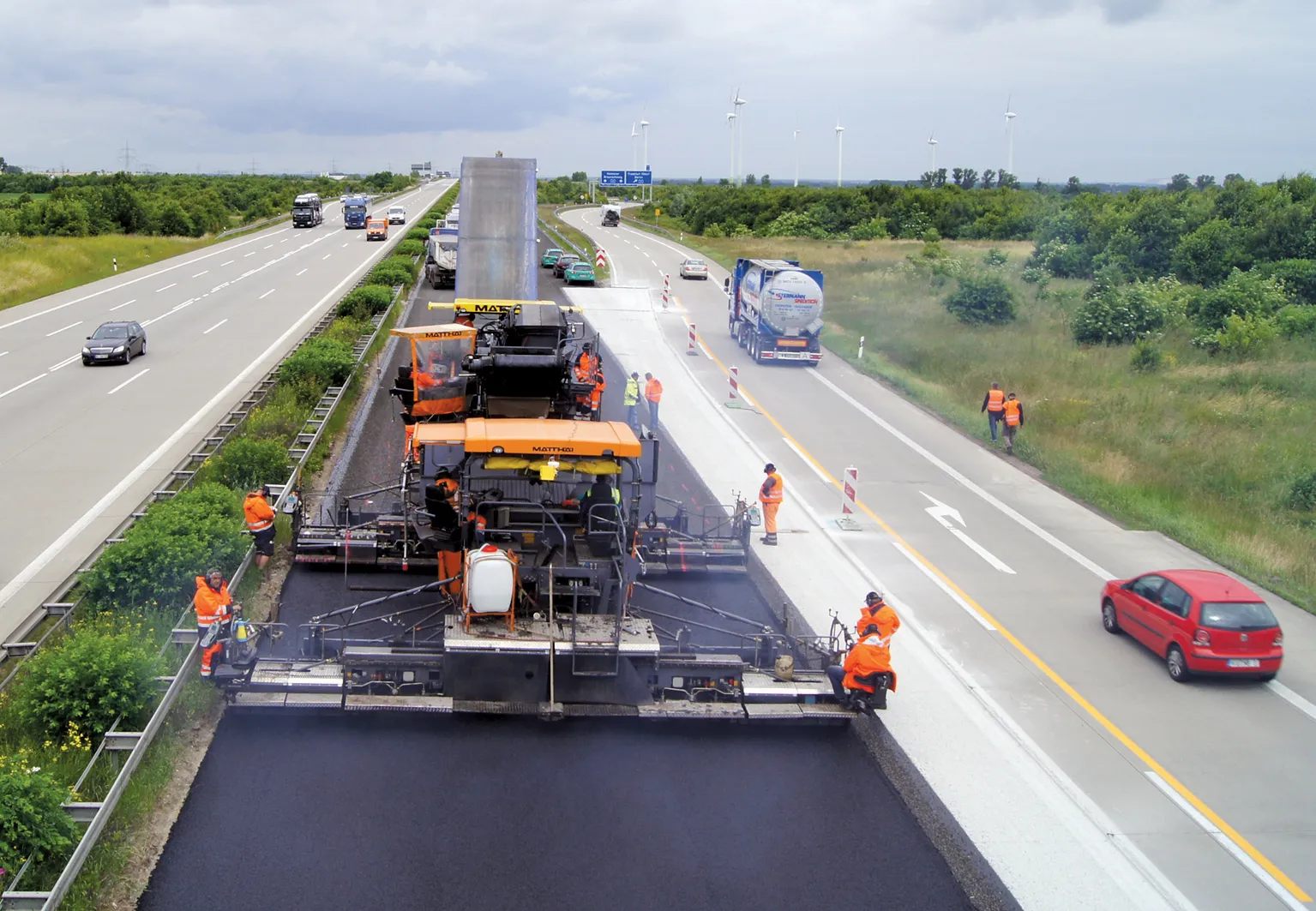
The 2km-long runway rehabilitation on Yap Island will require 26,000tonnes of hot mix asphalt and is set to be completed in 2024. The Lintec CSD2500B's containerised design is particularly suitable for working in such remote Pacific Islands due to its portability.
Contractor GPPC acquired a Lintec CSD2500B containerised asphalt mixing plant and has started work on the runway and taxiway rehabilitation project at Yap International Airport (YAP). The airport is located in the Yap Islands, also known as Wa’ab, in the Federated States of Micronesia. Located in the western Pacific Ocean almost 1,440km due east of the Philippines, the airport runway was due for improvement to support international connections to Guam and Palau.
The containerised design of the Lintec CSD range of asphalt mixing plants allows easy, low cost transportation making it suit project works, a feature that is valued amongst customers. The contractor has benefited from this features as the plant will eventually be moved and carry out other works across the remote Pacific Islands.
The airport rehabilitation project started in April 2022 and the plant was installed in January 2023, ready to begin repaving the 2km-long by 61m-wide runway with approximately 26,000tonnes of hot mix asphalt. After the job is completed around April 2024, the CSD2500B’s portability advantages will be valuable when the plant moves to nearby islands for the next project.
“There are several unique, major challenges that are present when working on remote islands,” said Jefferson Gayas, project manager, GPPC. “Getting hold of quality materials can be difficult, and equipment is often in short supply. It’s also rare for projects or consecutive jobs to take place on the same island so the ease with which the CSD2500B can be relocated makes that task much less of a headache.”

Island projects are typically smaller, which results in quicker completion schedules so the modular construction of the CSD asphalt mixing plant lends itself to rapid and convenient dismantling and installation. Built within ISO certified sea containers, thThe 2km-long by 61m-wide airport runway on Yap Island will benefit from a new asphalt surface, with the material delivered from a Lintec & Linnhoff containerised plant
is Lintec design can be efficiently and economically transported on land and sea. The internal components are also protected from salt ingress during sea transport, a vital consideration when the equipment is moved between Pacific Islands.
Once delivered to the new jobsite, the rigid nature of the containers reduces plant setup cost. It removes the need for concrete foundations to be prepared due to their high stability on suitably compacted soil. Their enclosed structure also boosts security with a single, lockable main access door.
As an ideal choice for both small and big projects, the CSD2500B provides an output of up to 160tonnes/hour, in 2.5tone batches. Its double screen drum technology combines the heating and screening of aggregates in a single unit. This eliminates the need for a hot elevator and vibrating screens, greatly reducing fuel consumption and maintenance.
The Yap Islanders also have a long history as experienced sailors, aiding in the moving of the asphalt plant between the islands and over hundreds of kilometres, according to Lintec & Linnhoff.









